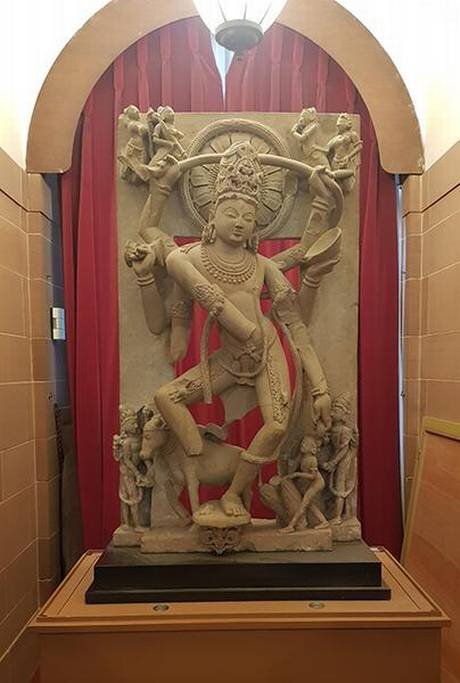Indian Heritage & Culture
Natesa: Pratihara Style of Rajasthan
- 30 Jul 2020
- 2 min read
Why in News
Natesa, a rare sandstone idol from the 9th century (Pratihara Style of Rajasthan) has been retrieved after 22 years by Rajasthan police.
Key Points
- Description: The Natesa icon, currently at the Indian High Commission, London, was originally from the Ghateswar Temple, Baroli, Rajasthan.
- It was smuggled out of the country in 1998.
- A few archaeologists behind the ‘India Pride Project’ have also taken consistent efforts for the restitution of the Natesa icon.
- India Pride Project: It is a group of art enthusiasts who use social media to identify stolen religious artefacts from Indian temples and secure their return.
- Features: The sandstone Natesa figure stands tall at almost 4 ft. in a rare and brilliant depiction of Shiva.
- A beautiful depiction of Nandi is shown behind the right leg of the Natesa icon.
- Significance: The Archaeological Survey of India (ASI) and the Ministry of Culture should use this restitution as a much-needed impetus to go after thousands of artefacts stolen since the 1960s.
Pratihara Style
- It is a famous temple architecture belonging to the Gurjara-Pratihara dynasty of Rajasthan.
- They ruled much of Northern India from the mid-8th to the 11th century.
- Significant Rulers: Nagabhata Il, Mhir Bhoj, Mahenedra pal I
- Style: The architecture is known for their sculptures, carved panels and open pavilion style temples belonging to Nagara Style of temple Architecture.
- They used most common sandstones for idols that have various shades of red, caused by iron oxide (rust).
- The greatest development of their style of building is at Khajuraho, Madhya Pradesh, now a UNESCO World Heritage Site.




